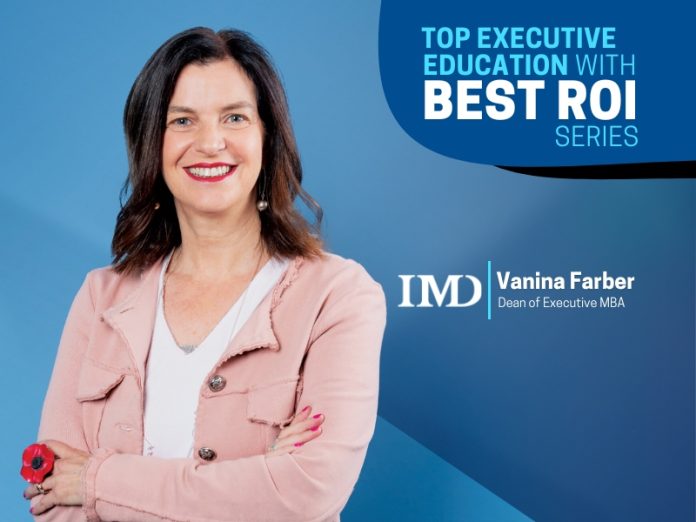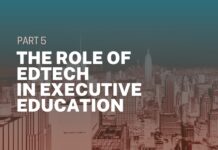Interview with Vanina Farber Dean of Executive MBA at IMD
If you are struggling to find an EMBA program that truly aligns with your own particular circumstances and requirements, how about one that lets you embark on a personalized learning journey? IMD’s Vanina Farber outlines the institution’s highly flexible EMBA offering.
What distinguishes IMD’s Executive MBA program as a leader in delivering high ROI for executives seeking advanced business education?
IMD is a unique business school created by executives who knew that real learning comes from solving real challenges. Our faculty teach and work alongside global companies, bringing current insights and practical problems into each lesson. Every discussion, project, and learning experience is designed for leaders facing real organizational challenges. Our EMBA participants can apply what they learn immediately in their organizations, creating value while they study. With two flexible formats—Elective-Flex and Modular-Flex—leaders can choose how they learn, ensuring that their development aligns with their career demands.
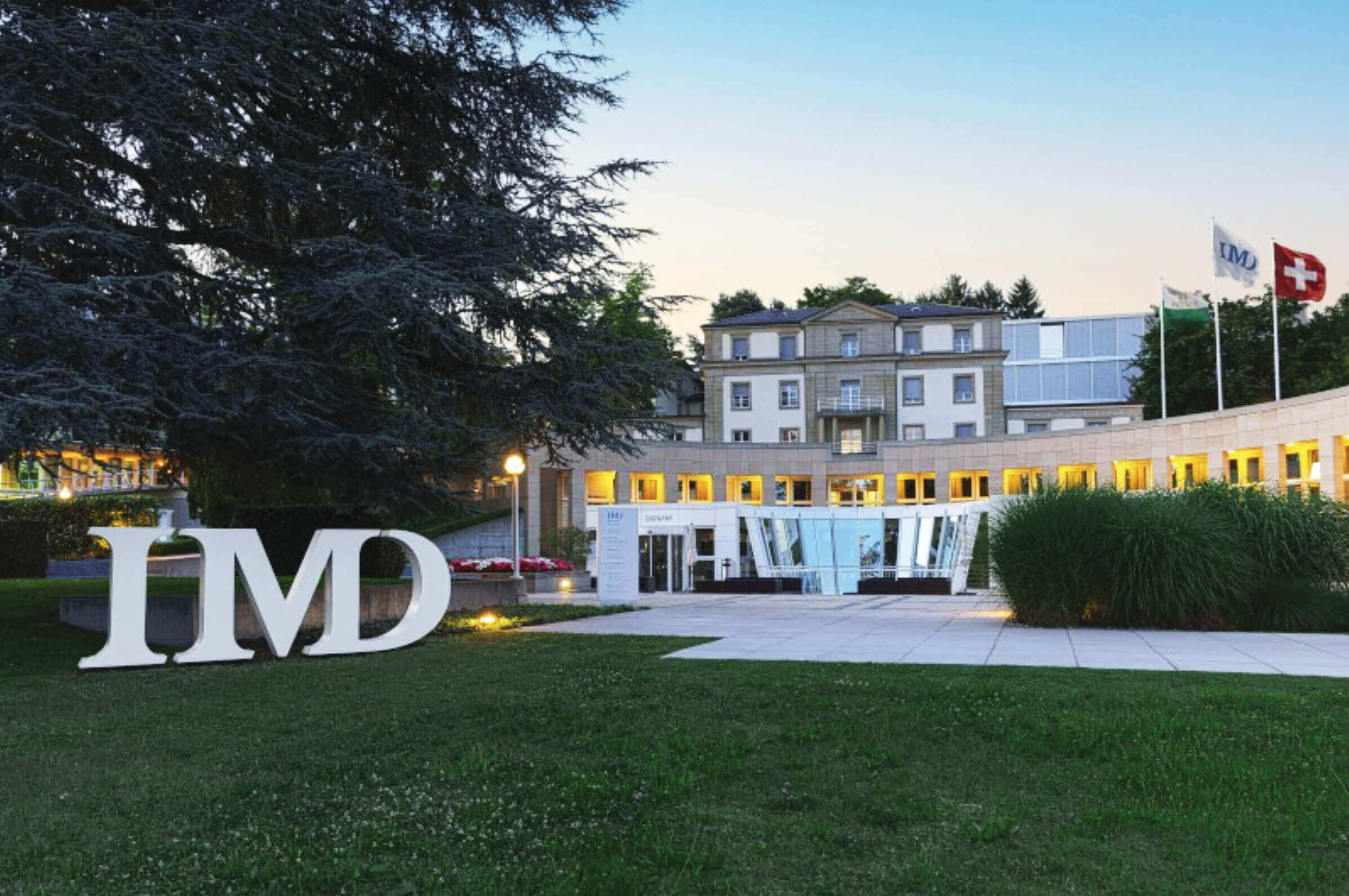
Can you share key features of the new structure of the EMBA program and how it balances flexibility with rigorous personal and professional development?
The Modular-Flex format breaks away from the more rigid, time-bound structure of previous programs. It includes flexible start dates, multiple entry points, and flexible duration. Additionally, participants can choose learning pathways that align with their career stage, professional goals, and personal commitments. Elective-Flex provides more flexibility in terms of content, format, and location, allowing participants to tailor the program to their individual interests through a choice of electives and Global Immersion Weeks. This combination of formats makes the program highly adaptable to individual needs and preferences.
Participants work through real business challenges, manage crisis simulations, and lead transformation projects.
Some key features include:
- Modular design: The program is delivered in several stages, allowing participants to pause and re-enter the program at various points and progress at their own pace. There are also multiple starting points; a variety of programs can serve as a foundation to the EMBA, including the recognition of prior learning in other accredited institutions.
- Flexible delivery options: Courses are offered in a blend of online, on-campus, and international modules. In the Modular-Flex format, participants can, for example, choose to start their learning journey either online or on-campus and, if on campus, in an intensive 3-week introduction, or 1 week followed by online learning. So they really have the freedom to choose what best fits their needs and circumstances.
- Customizable learning paths: Participants can select from multiple electives in the Elective-flex format, with both in-person and online options, and a variety of international destinations for Global Immersion Weeks. This allows each participant to create a personalized learning journey with content that aligns with their interests, development needs, and professional aspirations.
The Mastery Stage includes six intensive weeks. How do these weeks ensure that participants build deep, actionable expertise in key areas such as leadership and crisis management?
The Mastery Stage is part of the Modular-Flex format. It combines intensive learning with practical application. Participants work through real business challenges, manage crisis simulations, and lead transformation projects. Each module builds on the previous one, helping executives develop both the strategic insight and practical skills they need to lead effectively. The spacing of modules allows participants to apply their learning in their own company between sessions, creating immediate impact in their organizations.
Can you share more about the objectives and outcomes of the Global Immersion Weeks? How do these experiences prepare executives for navigating complex international business environments?
Experiential learning is a fundamental part of the program, and the Global Immersion Weeks are a great example of that. They put executives in the middle of different business environments and cultures where they can apply what they’re learning in a context that is different than their own. They work directly with companies facing real challenges, from digital transformations in India, corporate resilience in Japan, entrepreneurship and innovation in Silicon Valley, USA, to social innovation and impact investment in Peru, to name just a few examples. Participants will collaborate with local businesses, challenge their own assumptions and biases, and work together to address current problems, while gaining fresh perspectives on global business dynamics.
With three of the six weeks taking place on the Lausanne campus and the rest globally, how does this blend of locations contribute to a well-rounded executive education experience?
The combination of Lausanne modules and global experiences is a reflection of today’s business world. At our Lausanne campus, executives focus on developing core capabilities and reflecting on their leadership. During Global Immersion Weeks, they apply these skills in different contexts, working with companies and leaders worldwide. This mix helps participants build the versatility needed to lead across cultures and markets. Participants have a choice of destinations and topics for the Global Immersion Weeks so they can select the themes that are most relevant for them. It’s important to note that the curriculum also includes some online modules. This blended learning approach provides a convenient balance for busy executives.
Crisis management is also a unique aspect of the IMD EMBA, especially with the Swiss Armed Forces partnership. What specific leadership skills do participants gain from this unique partnership?
Our crisis management simulation, led by Swiss Armed Forces generals, creates a unique learning environment. It requires a different mindset, which is often counterintuitive for seasoned executives. Participants face high-pressure situations where they must make quick decisions with limited information. They learn when to switch from business-as-usual to crisis mode, how to communicate under pressure with various stakeholders, and how to keep teams focused when stakes are high. These skills prove valuable whether managing corporate crises or navigating market disruptions.
Has IMD started integrating ESG (environmental, social, and governance) principles into the curriculum? Why is this critical for future leaders?
Sustainability and responsible leadership are integrated throughout our program, not treated as separate topics. Participants examine how environmental and social factors affect business strategy, explore sustainable business models, and learn to balance stakeholder interests. Through real projects and cases, they develop practical approaches to embedding ESG principles in business decisions.
How has the program evolved in recent years to address emerging trends and the changing needs of executive leaders?
Innovation in learning is core to IMD’s DNA. Our dedicated learning innovation team constantly develops new ways to enhance executive education, from AI-powered learning tools to immersive simulations. We’ve pioneered the use of technologies like IMD AI+ and virtual reality, while strengthening our hands-on approach through crisis simulations and real-world projects.
Innovation in learning is core to IMD’s DNA. Our dedicated learning innovation team constantly develops new ways to enhance executive education, from AI-powered learning tools to immersive simulations.
We also continuously update our curriculum to address emerging business challenges, from digital transformation to sustainability leadership. Our faculty, actively engaged with global companies, bring current business challenges into every program, ensuring that our learning stays relevant and immediately applicable.
The redesign of the EMBA program is another example of this continuous innovation. This evolution responds to how executive careers have shifted from traditional ladders to more fluid journeys. Throughout all these changes, our focus remains constant: creating immediate impact through practical, relevant learning.
As the Dean of the EMBA program, what is your leadership vision for the program and how do you ensure it remains at the forefront of executive education?
At its core, my vision is about building a program that truly reflects the evolving needs of today’s diverse executive landscape while staying grounded in IMD’s DNA of what I believe is timeless: reflective leadership as the backbone of transformation. To support this continued vision, we’ve designed the EMBA to offer unprecedented agency and flexibility. Executive careers span different cultures, industries, and life circumstances – there’s no one-size-fits-all journey. Our participants deserve the freedom to shape their development around their unique aspirations and realities, whether they’re rising corporates, tech entrepreneurs, established family business leaders, or corporate innovators pivoting their careers.
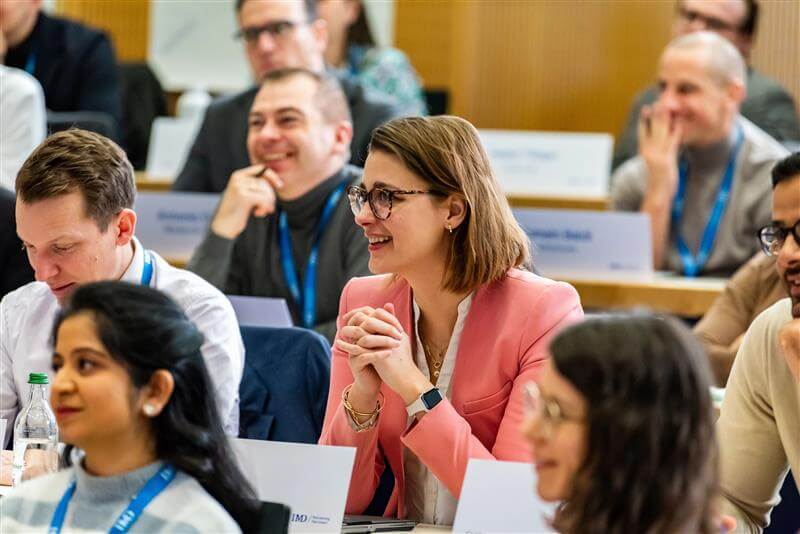
What excites me most is creating an inclusive, dynamic ecosystem where diverse perspectives enrich the learning experience. The program gives participants access not just to a degree, but to the full power of IMD’s Executive Education offerings, global networks, and partnerships. This is learning without boundaries—where the value extends far beyond the modules, unlocking opportunities to continuously grow and transform alongside a truly global community. To me, this is not just about adapting to the future; it’s about setting a new standard for how management education should empower executives from all backgrounds for whatever lies ahead.
Could you share any standout success stories from recent EMBA graduates, particularly in terms of career advancement or innovative contributions to their industries?
Our alumni create impact in remarkably different ways. Take Taras Panasenko (EMBA 2023), as an example. He is co-founder and CEO of Aurora Multimarket, a retail chain bringing essential goods to communities across Ukraine. When Russia escalated its invasion in 2022, not only did Taras need to pause his EMBA studies, but he was also forced to close 100 stores in occupied territories. The EMBA program had taught him valuable lessons in prioritization and leadership that proved crucial during the crisis. Despite ongoing challenges, Taras has turned adversity into opportunity, expanding Aurora Multimarket into Romania and earning recognition as Forbes Ukraine’s Entrepreneur of the Year 2024. His story shows how leadership skills, combined with resilience, can create impact even in the most challenging circumstances.
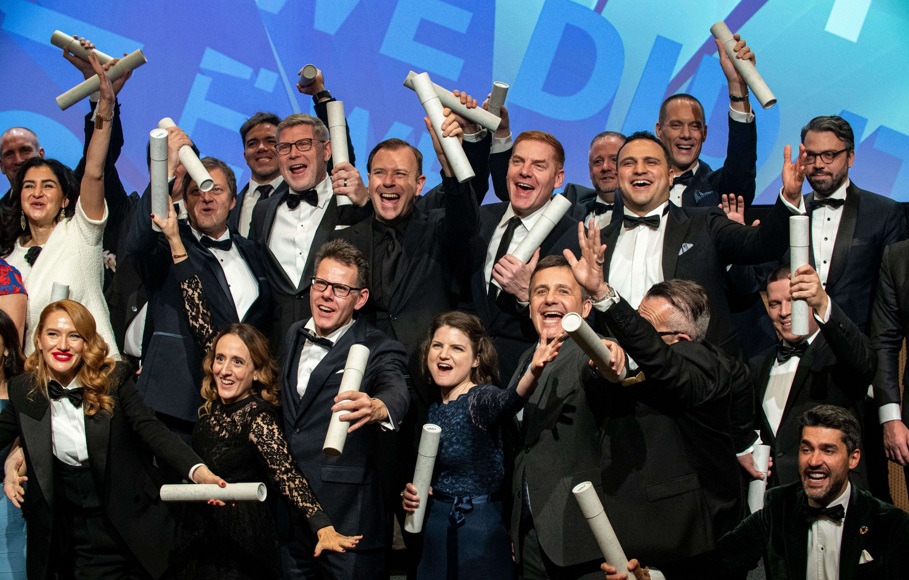
Ann-Christin Andersen (EMBA 2013) is bringing fresh perspectives to energy leadership, building on her experience in the EMBA. The EMBA’s personal coaching and direct feedback helped her understand her impact as a leader, particularly valuable as she moved from Chief Digital Officer at TechnipFMC to CEO of Norwegian Energy Partners. Today, she champions diversity in leadership while driving sustainable energy solutions, applying the program’s lessons about balancing different leadership styles and focusing on what matters most.
Hope Murera (EMBA 2002) has transformed insurance in Africa as CEO of ZEP-RE. Drawing on insights from her Silicon Valley Global Immersion experience, she developed innovative solutions for underserved markets. Her team created insurance products protecting smallholder farmers against climate change and pioneered a program helping thousands access home ownership. Hope credits the EMBA’s practical problem-solving approach for changing how she identifies opportunities: “The biggest lesson was creating impact. It’s not just the numbers. And guess what? The numbers follow.”
These stories are just a few of many that demonstrate how our alumni combine EMBA learnings with their experience to create lasting impact – whether navigating crisis, developing innovative solutions for societal challenges, or leading industry transformation.
How does IMD foster a culture of lifelong learning and adaptability among its Executive MBA participants to prepare them for future disruptions?
Learning at IMD extends beyond graduation, thanks to an alumni network active in more than 180 countries. The program’s global network and regular alumni events create ongoing opportunities to exchange ideas and insights. Our approach encourages executives to view challenges as learning opportunities and to constantly seek new perspectives. We also provide continued access to faculty research and executive education programs, helping our alumni stay current as business evolves.
The redesigned IMD EMBA program sets a new standard in executive education by offering a flexible program that adapts to the career trajectories of modern executives. This redesign transforms the EMBA from a time-bound generalist program into a dynamic, evolving ecosystem of continuous learning and growth, empowering executives to stay ahead of future trends, technological advances, and global challenges.
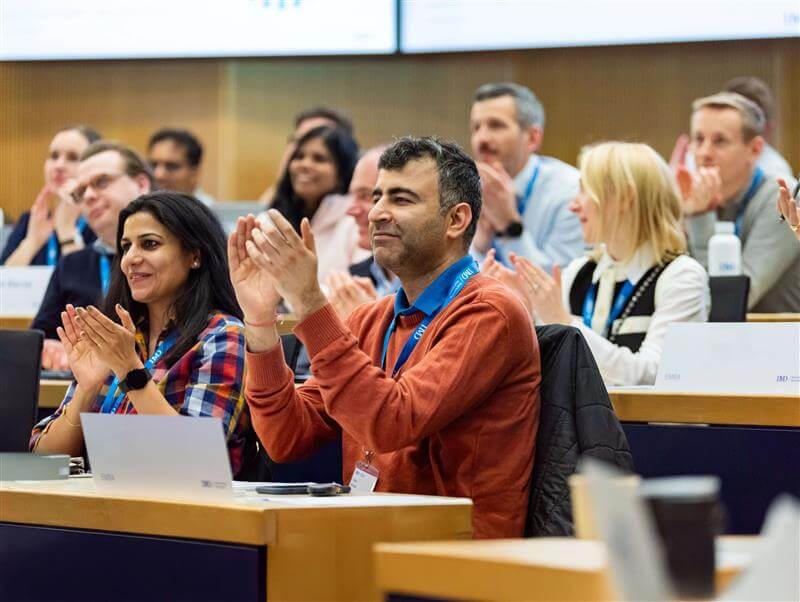
How do you see the role of women in executive leadership evolving? In what ways does IMD empower female executives to drive meaningful change in their organizations?
Traditional EMBA programs often mirror the same structural barriers we see in workplaces: rigid schedules, one-size-fits-all approaches, and hidden assumptions about what a “successful executive” looks like. These barriers have historically affected women executives disproportionately, forcing them to choose between career advancement, family commitments, and leadership development. At IMD, we’ve fundamentally redesigned our program to challenge these constraints.
Our approach extends beyond format to include personalized leadership coaching and tailored career acceleration support.
We recognize that talent doesn’t conform to a single profile or path. That’s why we’ve created multiple flexible pathways, with varied entry points throughout the year, adaptive pacing from 14 to 48 months, and blended learning that combines online modules with focused in-person sessions. This flexibility particularly resonates with women executives, who often navigate complex career transitions while balancing multiple responsibilities.
Our approach extends beyond format to include personalized leadership coaching and tailored career acceleration support. These aren’t add-ons to our program; they’re core features that reflect our belief that the future of business leadership must be more diverse, innovative, and impactful. Diverse cohorts and work environments help enrich discussions, broaden networks, and ultimately prepare leaders who can better address today’s complex business challenges. This isn’t just about gender equity; it’s about developing the kind of adaptable, diverse leadership that organizations need to thrive in an uncertain future.


